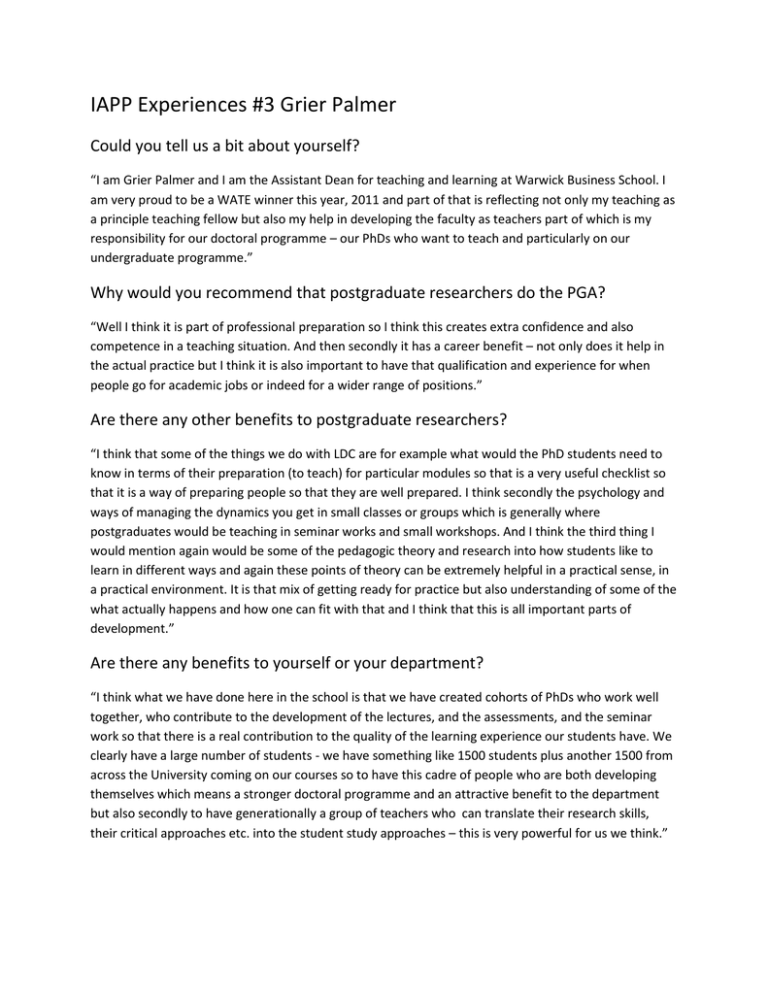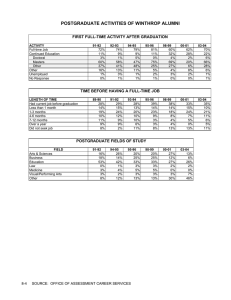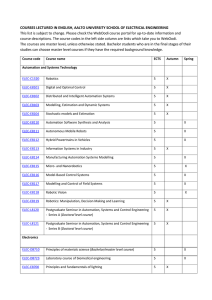IAPP Experiences #3 Grier Palmer
advertisement

IAPP Experiences #3 Grier Palmer Could you tell us a bit about yourself? “I am Grier Palmer and I am the Assistant Dean for teaching and learning at Warwick Business School. I am very proud to be a WATE winner this year, 2011 and part of that is reflecting not only my teaching as a principle teaching fellow but also my help in developing the faculty as teachers part of which is my responsibility for our doctoral programme – our PhDs who want to teach and particularly on our undergraduate programme.” Why would you recommend that postgraduate researchers do the PGA? “Well I think it is part of professional preparation so I think this creates extra confidence and also competence in a teaching situation. And then secondly it has a career benefit – not only does it help in the actual practice but I think it is also important to have that qualification and experience for when people go for academic jobs or indeed for a wider range of positions.” Are there any other benefits to postgraduate researchers? “I think that some of the things we do with LDC are for example what would the PhD students need to know in terms of their preparation (to teach) for particular modules so that is a very useful checklist so that it is a way of preparing people so that they are well prepared. I think secondly the psychology and ways of managing the dynamics you get in small classes or groups which is generally where postgraduates would be teaching in seminar works and small workshops. And I think the third thing I would mention again would be some of the pedagogic theory and research into how students like to learn in different ways and again these points of theory can be extremely helpful in a practical sense, in a practical environment. It is that mix of getting ready for practice but also understanding of some of the what actually happens and how one can fit with that and I think that this is all important parts of development.” Are there any benefits to yourself or your department? “I think what we have done here in the school is that we have created cohorts of PhDs who work well together, who contribute to the development of the lectures, and the assessments, and the seminar work so that there is a real contribution to the quality of the learning experience our students have. We clearly have a large number of students - we have something like 1500 students plus another 1500 from across the University coming on our courses so to have this cadre of people who are both developing themselves which means a stronger doctoral programme and an attractive benefit to the department but also secondly to have generationally a group of teachers who can translate their research skills, their critical approaches etc. into the student study approaches – this is very powerful for us we think.”





